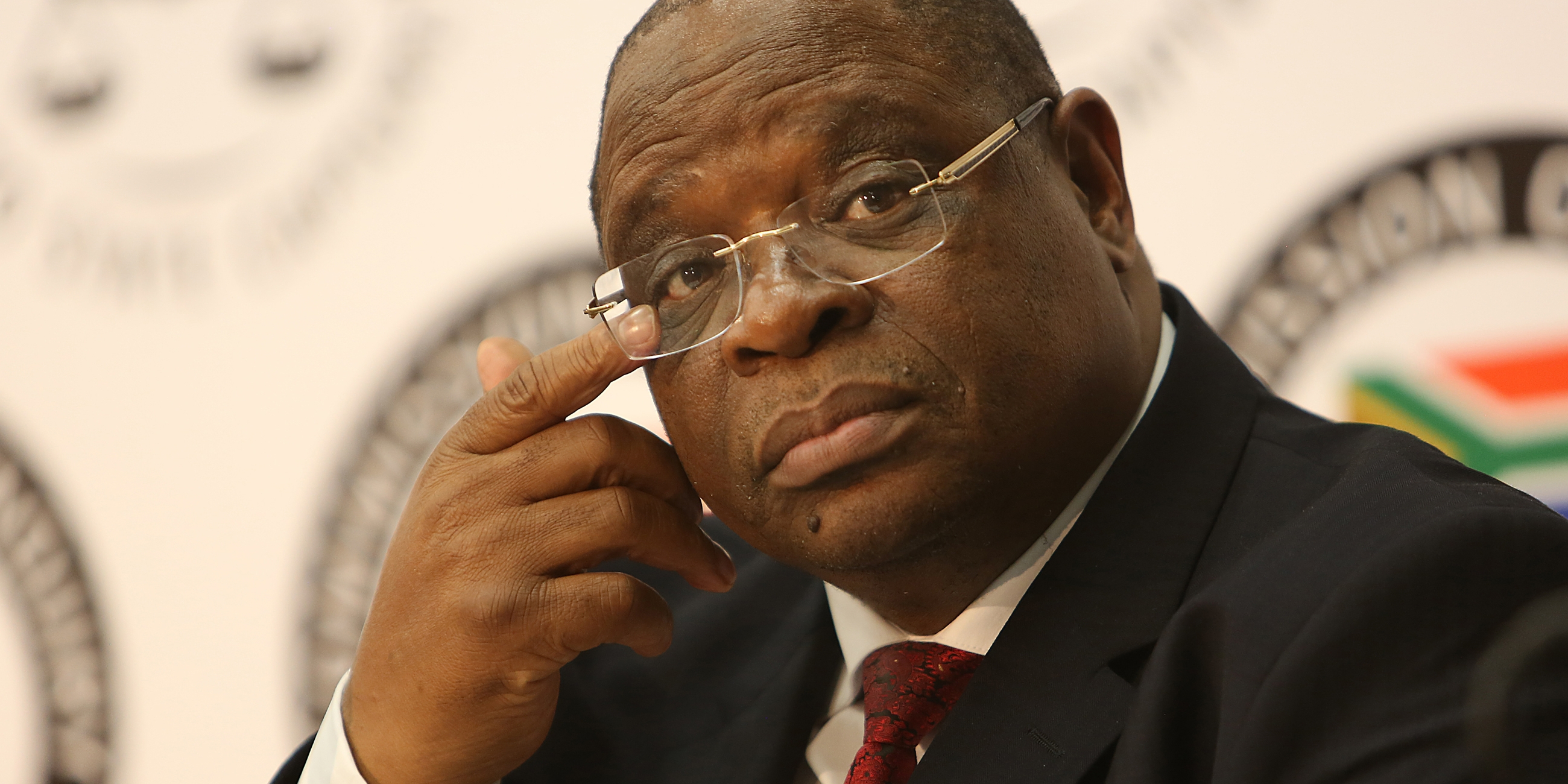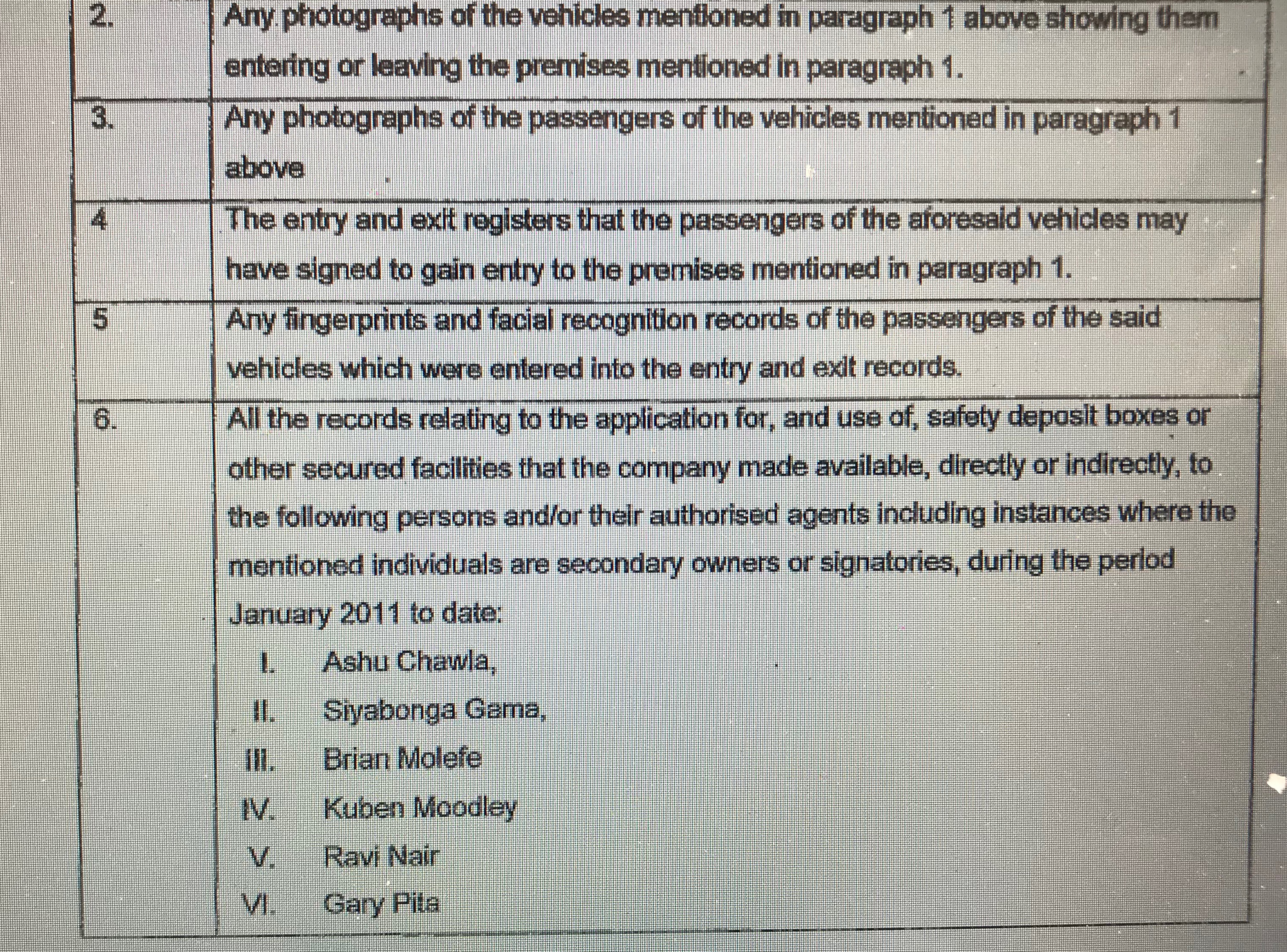The High Court in Johannesburg, critical of “unauthorised conduct” by the Zondo Commission of Inquiry into State Capture, has handed down a cost order against it following a dramatic bid to seize the contents of rented safety deposit boxes belonging to alleged Gupta “fixer” Kuben Moodley.
Moodley rushed to court last month to set aside what he deemed a misdirected summons served on Knox Titanium Vault Company without his knowledge.
On Wednesday 21 August 2019, the court set aside the summons, as well as a subsequent search-and-seizure warrant that sought to prohibit Moodley from accessing the boxes and for the content to be handed to the commission.
Moodley, in court papers, said the commission had failed to describe the specific books, objects or documents it sought to extract and that a safety deposit box was not an object, but rather a facility in which such was kept.
Moodley added that Knox, in having granted the commission an initial glimpse of the material, could only have accessed those boxes by allegedly unlawfully drilling or breaking them because he has the key in terms of a contract with the vault company.
“Knox established (in its own marketing language) a state-of-the-art safety deposit box facility at its River Street address in the building that had been constructed and that was previously used by the US consulate in Johannesburg,” said Moodley of the Houghton facility.
He said he was leasing the safety deposit box to store personal items, including jewellery and watches as well as business documents such as commercial agreements and title deeds.
In his urgent legal challenge, Moodley also raised his right against self-incrimination in terms of the Commissions’ Act and the fact that the search warrant issued had gone out via the acting secretary of the commission as opposed to the chairman, Deputy Chief Justice Raymond Zondo, the only person with the power to do so.

The chair of the Commission of Inquiry in State Capture, Deputy Chief Justice Raymond Zondo, May 24, 2018 in Johannesburg. (Photo by Gallo Images / Sunday Times / Alon Skuy)
Daily Maverick has established that the commission is already in possession of a new search-and-seizure warrant, issued in chambers. Moodley is also challenging that warrant in court.
It is understood that the latest warrant is being challenged on, among other grounds, that the commission does not have the power to seize cash – that it can only seize specified documents or objects that could assist in its investigations.
In challenging the initial summons and search warrant, Moodley said he only became aware of the commission’s efforts to access his property when Knox blocked him from accessing the vault on 24 June 2019.
Moodley is often called “Mr 5%” and his company, Albatime, is one of several entities implicated in a kickback scandal involving deals with state-owned entities and the Gutpa family.
Moodley argued that he was wholly dependent on the cash held in the box to pay his household and other expenses after both Absa and Nedbank terminated his banking facilities.
Information contained in court papers shows that from 2009 the controversial businessman held safety deposit boxes at Knox that required use of his personal key, a “master key” held by the company, and facial recognition for access. He upgraded to three “extra, extra large” boxes after 2011.

Court papers state that an initial glance at the content revealed “wads” of US dollars, South African rands, Kruger Rands and watches – the value of which made Knox reluctant to allow the goods to move off its premises.
The company, in an affidavit filed in the matter, raised concerns about potential damages claims from Moodley in the event of losses occurring.
But it said while Moodley suggested his livelihood was being threatened by having been denied access to the safety deposit boxes, he had in fact been “frugal” with the facts.
Knox argued that Moodley did not reveal how much cash the boxes contained, nor did he say whether he had any other existing banking facilities upon which he could rely until the matter was finalised.
The company said Moodley had confirmed, in his own affidavit, that he was a “businessman”, suggesting he had some income, and that his given address indicated a person of some adequate means.
And, said Knox, his wife, former Eskom board member Veroshini Naidoo, also the holder of a safety deposit box – not covered by the legal wrangle, arrived at the vault with an apparently empty “trolley suitcase” to remove unspecified or unknown content and wheeled out what appeared to be a “heavy and full” suitcase on 26 June 2019 as the legal case over Moodley’s boxes intensified.
This was 48 hours after Moodley discovered his access had been blocked.
The company reckoned it was required to comply with the spirit and content of the initial summons in view of the commission’s mandate to investigate allegations of state capture, fraud and corruption.
The initial summons issued by the commission also covered a different safety deposit box and there appears to have been no objection to the execution of this part of the summons.
Court papers show this account is registered in the name of a woman and former Transnet bigwig Gary Pita is listed as the second authorised person.
The commission has asked Knox to produce a range of material connected to other parties embroiled or implicated in state capture.
Knox, according to the court papers, informed the commission that, of those, former Eskom and Transnet bosses Siyabonga Gama and Brian Molefe have never held facilities at the vault. But:
• The account of former Eskom CEO Anoj Singh, who held eight safety deposit boxes between 2013 and 2017, had been cancelled.
• A box held by former Gupta company executive George van der Merwe in his personal name and another, in the name of Gupta company Shiva Uranium, which he was a signatory to, had both cancelled by Knox.

Why the initial summons bombed?
The Zondo commission first served summons on Knox on 13 June 2019 for material, including records, video footage and logbooks relating to the boxes rented by Moodley, the one associated with Pita and Singh, and others.
About a week later it sought the physical extraction of Moodley’s boxes with their contents via a search-and-seizure warrant.
Knox, now concerned about its own liability – in view of the high-value content – notified the holders of those boxes as it deemed it necessary to record the extraction process and for a thorough inventory to be drawn up.
But Moodley claims he never received notification of the initial summons and says he only became aware of it when he tried to access his boxes on 24 June 2019, the day on which the search warrant for the boxes was issued.
The company told him it was under “strict instructions” from the state capture commission.
While Moodley seemingly tried to figure out what to do next, Knox, during a meeting with the commission at the company’s premises, arranged a viewing of the contents of Moodley’s safety deposit boxes, during which photographs were taken.
At the instruction of the commission’s team, the boxes were then sealed and returned to the vault. The commission “rented” the boxes overnight as it sought a secure location for them once they had been collected.
In the days that followed, both Moodley and the commission went to court for access.
A crucial issue raised in Moodley’s legal challenge related to the search and seizure powers of the commission and the fact that only chairperson Zondo could authorise or delegate such action and not an officer, in this case the commission’s acting secretary.
On Wednesday 21 August 2019, the High Court set aside the summons and ordered the commission to pay Moodley’s costs.
The next legal round, in which Moodley is set to challenge the latest search warrant, is expected to play out over the coming weeks and is likely to have significant implications for the commission’s quest for evidence. DM




 Become an Insider
Become an Insider